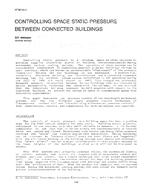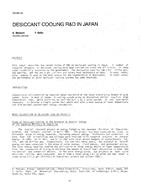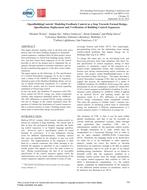Integration of semitransparent PV cell inside air cavity of the Double Skin Façade (DSF) buildings can be considered a good ecological solution but the high temperature during the summer period may raise the air temperature in the cavity and reduce the PV cell energy efficiency. Numerical simulation of different DSF configurations is presented to evaluate thermal performance of inner glass , air inside the cavity and the effects on PV cell energy efficiency after cooling the gap by the ventilation air flow rate supplied to the conditioned zone, for the purpose of Indoor Air Quality (IAQ). This work focused the attention on validation of the Computational Fluid Dynamics (CFD) numerical model and analyzed different strategies of DSF air ventilation. A comparison has been carried out to evaluate the best technique in air circulation and the lowest temperature distribution attained on both the PV cell surface and the inner glass at Cairo-Egypt in summer maximum design conditions as well as on the average cooling season time scale. Energy efficiency of PV cell has been calculated for each configuration in order to illustrate the improvement in cell energy conversion performance.
Citation: ASHRAE Papers: 2015 ASHRAE Annual Conference, Chicago, IL
Product Details
- Published:
- 2015
- Number of Pages:
- 8
- File Size:
- 1 file , 1.7 MB
- Product Code(s):
- D-CH-15-C034


